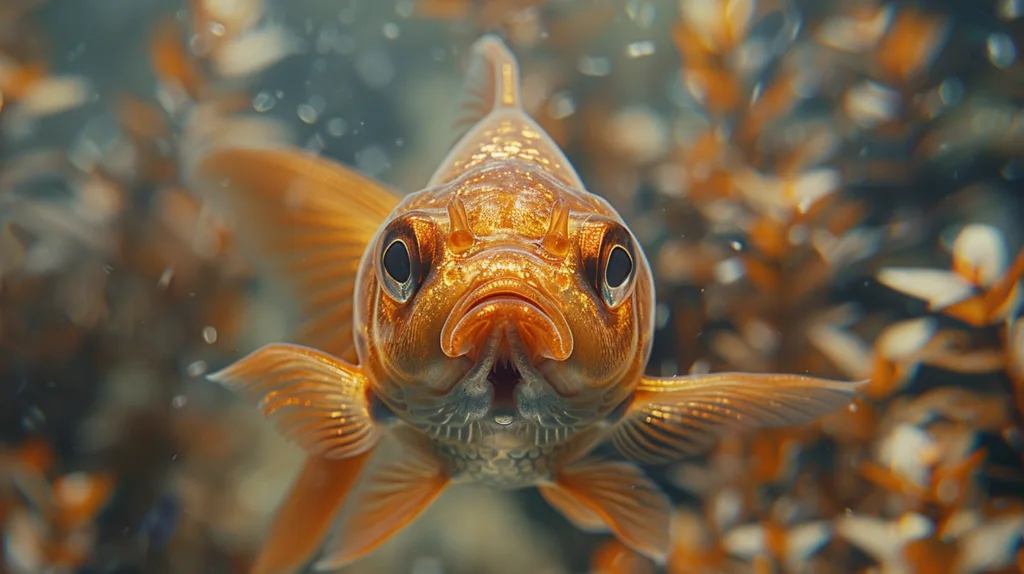Have you ever wondered if fish tanks are truly as odorous as they say, or if it’s just a fishy tale that’s gotten out of hand? Well, the truth is that fish tanks can indeed become smelly if not properly maintained. The odor usually comes from decaying food, waste, and dead plants or fish. Additionally, the fish behavior at top of tank, such as excessive gasping at the water’s surface, could also contribute to the smell if the water is not properly aerated. Therefore, regular cleaning, water changes, and proper filtration are essential to keeping a fish tank fresh and odor-free.
So, do Fish Tanks smell? Let’s dive into the murky waters of aquarium odors and separate fact from fiction.
Key Takeaways
- Regular maintenance like water changes prevents fish tank odors.
- Sulfur compounds cause ‘Rotten Eggs’ smell in aquariums, preventable with aeration and maintaining an aquarium clean condition.
- Good hygiene practices maintain clean aquariums and prevent bad smells.
- Persistent odors signal serious issues, necessitating professional intervention.
Understanding Why Fish Tanks Smell: Causes and Factors

When maintaining an aquarium, understanding the causes and factors that contribute to fish tank odors is essential for a clean and healthy aquatic environment. One significant factor that can lead to foul smells in a fish tank is the presence of dead fish.
When a fish dies in the tank, its body starts to decompose, releasing compounds that create a strong odor. This rotting process is a natural part of the nitrogen cycle in the aquarium, where ammonia from fish waste and decaying matter is broken down by beneficial bacteria. However, if dead fish are left unattended for too long, the ammonia levels can spike, leading to an even more potent smell.
Regular water changes are crucial in preventing the buildup of ammonia and other waste products that can cause a foul smell. Ammonia is highly toxic to fish and can also contribute to an unpleasant odor in the tank. By removing a portion of the water and replacing it with fresh, dechlorinated water, you dilute the concentration of harmful substances and maintain a healthier environment for your aquatic pets.
In addition to dead fish and excess ammonia, uneaten food and decaying plant matter can also produce foul odors in the aquarium. It’s essential to remove any uneaten food promptly and trim any decaying plants to prevent the accumulation of organic waste that can lead to rot and bad smells.
The “Rotten Eggs” Dilemma: Why Some Fish Tanks Smell Like Rotten Eggs

Addressing the ‘Rotten Eggs’ smell in fish tanks requires understanding the role of sulfur and how it affects the overall odor. When sulfur compounds are present in your aquarium’s water, they can create a foul odor reminiscent of rotten eggs. This smell occurs due to anaerobic bacteria breaking down organic matter in an oxygen-deprived environment, releasing hydrogen sulfide gas – the culprit behind the unpleasant scent.
To combat the ‘Rotten Eggs’ smell, maintaining proper aeration in your aquarium is crucial. Introducing oxygen-rich environments discourages the formation of hydrogen sulfide gas, thus reducing the likelihood of your fish tank smelling bad. Regularly cleaning and removing accumulated debris can also help prevent the buildup of sulfur compounds and maintain a fresh aquatic environment for your beloved fish.
Fish Tank Hygiene: Maintaining a Healthy and Odor-Free Aquarium

Regular maintenance and proper care are essential for ensuring a healthy and odor-free aquarium. When it comes to fish tank hygiene, keeping up with these tasks is crucial to prevent any foul stink from developing in your aquatic oasis.
Here are three key practices to maintain a clean and fresh-smelling aquarium:
- Monitor Water Quality: Regularly test the water parameters such as ammonia, nitrites, and nitrates to ensure they’re within acceptable levels. Proper filtration plays a significant role in keeping the water clean and reducing odors. Changing a portion of the water frequently can also help maintain good water quality and prevent any unpleasant smells.
- Avoid Overfeeding: Overfeeding your fish can lead to excess food waste accumulating in the tank, resulting in a build-up of organic matter that can cause odors. Feed your fish the appropriate amount of food, and remove any uneaten food promptly to keep the tank clean and odor-free.
- Maintain Proper Filtration: A good filtration system is essential for removing waste and debris from the water, helping to prevent the accumulation of substances that can cause a stinky environment. Ensure your filter is clean and functioning correctly to maintain optimal water quality and a fresh-smelling aquarium.
Smell-Proofing Your Fish Tank: Tips and Tricks to Prevent Bad Smells

To maintain a fresh-smelling aquarium, implementing effective odor prevention strategies is key. One of the most common methods to control smells in aquariums is by using activated carbon, a staple for any aquarist looking to keep their tank clean. This powerful substance absorbs unpleasant odors, keeping your tank water fresh.
Additionally, incorporating aquatic plants into your tank not only adds aesthetic value but also helps in controlling odors. These plants can act as natural filters, absorbing excess nutrients that could lead to foul smells in the aquarium. Apart from these traditional methods, innovative products and technologies are available to further enhance smell control in community tanks.
Here are some practical tips and tricks to prevent bad smells in your aquarium:
| Tip | Description | Effectiveness |
|---|---|---|
| Use activated carbon | Absorbs unpleasant odors in tank water. | High |
| Perform partial water changes | Regular water changes help remove waste and refresh the tank water. | Medium |
| Maintain clean filter media | Dirty filter media can contribute to bad smells. Keeping it clean ensures proper filtration. | High |
| Check for decaying matter | Remove any dead plants, uneaten food, or fish to prevent decomposition and odor in the tank. | High |
| Monitor aquarium smells like | Regularly sniff around your tank to catch any early signs of bad odors and take action promptly. | High |
How to Prevent Fish Tanks from Smelling in a Bedroom Setting?
To prevent fish tanks from smelling in a bedroom setting, consider some fish tank decor ideas that can help improve water circulation and aeration, such as adding live plants, using a good filtration system, and keeping the tank clean. These simple decor ideas can make a big difference in keeping your bedroom smelling fresh.
When to Seek Help: Recognizing and Addressing Persistent Fish Tank Odor Issues

Recognizing persistent fish tank odor issues can help prevent potential problems from escalating. When the smell coming from your aquarium is particularly foul and doesn’t improve with regular maintenance, it may be time to seek help.
Here are three signs that indicate it’s time to take action:
- Fish Dies: If you notice that your fish are dying unexpectedly and the water smells off, there could be a serious issue at hand.
- Water Conditioner Ineffectiveness: Despite using a water conditioner and treated tap water as part of your regular tank maintenance, if the smell persists, it might indicate a larger problem that requires professional intervention.
- Filter System Overwhelmed: A properly functioning filter system should keep your tank clean and odor-free. However, if the smell is overpowering, it could signal that your filter system is overwhelmed and unable to handle the waste load in the tank.
Conclusion
In conclusion, fish tanks can develop odors if not properly maintained, but with regular cleaning and good hygiene practices, you can prevent any unpleasant smells.
Remember to regularly clean your tank, monitor water quality, and feed your fish responsibly to keep your aquarium odor-free.
By following these simple tips and tricks, you can enjoy a clean and fresh-smelling fish tank in your home.
Frequently Asked Questions
Do fish tanks always smell bad?
Not necessarily. A properly maintained and healthy fish tank should not have a strong or unpleasant odor. If your fish tank smells bad, it may indicate underlying issues that need to be addressed.
How can I prevent my fish tank from smelling bad?
To prevent your fish tank from smelling bad, make sure to regularly clean and maintain the tank, avoid overfeeding the fish, and ensure proper water parameters such as pH, ammonia levels, and temperature.
Why does my fish tank smell like rotten eggs?
A rotten egg smell in your fish tank could be a sign of decaying organic matter, such as rotting fish food or waste. It might also indicate an imbalance in the water chemistry, such as high levels of hydrogen sulfide gas.
Should I be concerned if my fish tank smells musty?
A musty smell in a fish tank can indicate mold or mildew growth, which can be harmful to both the fish and the tank environment. It is important to identify and address the source of the musty odor promptly.
How can I make my fish tank smell fresh and clean?
To make your fish tank smell fresh and clean, perform regular water changes, clean the tank accessories, filter media, and substrate, and ensure proper aeration and water circulation in the tank.






